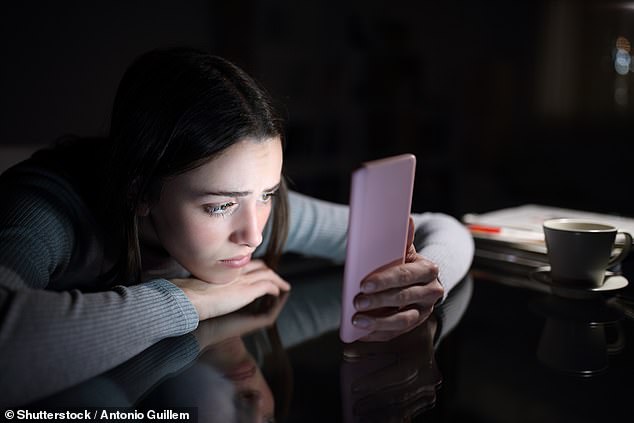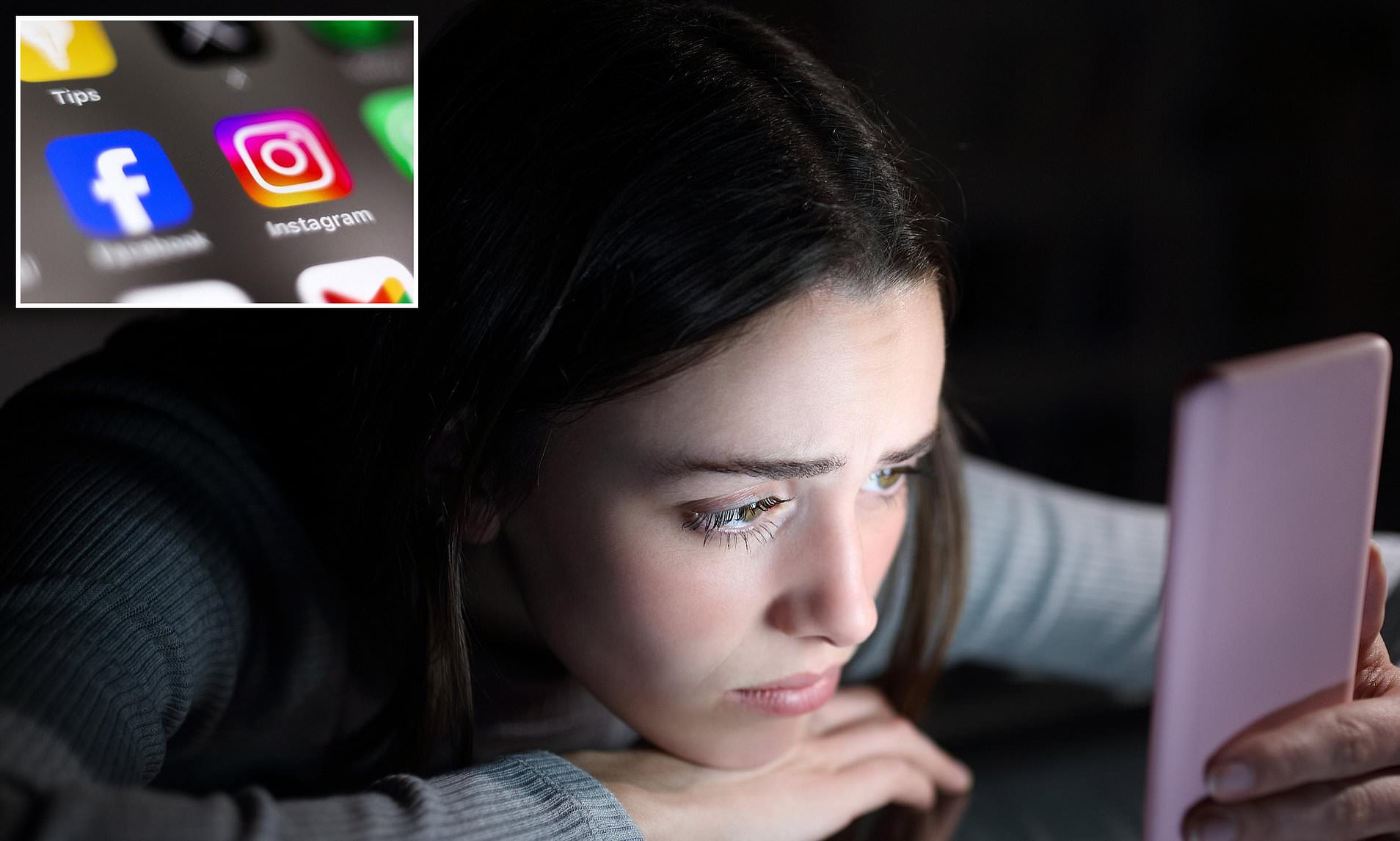Kids might face limitations preventing them from accessing social media past 10 pm due to worries that these ‘addictive’ platforms are adversely affecting the mental well-being of younger individuals.
Digital Secretary Peter Kyle is considering suggestions to implement a curfew similar to the TV watershed but designed for an online environment, specifically targeting those under 16 years old.
Specialists have often pointed out that social media can be a disruptive element affecting youths’ sleep patterns, interpersonal connections, and ability to socialize effectively.
.
He told
The Telegraph
‘It is evident that the addictive qualities of certain products are leading to anxiety and frustration among young individuals.’
I think there’s proof indicating that younger individuals experience anger towards themselves for the portion of time that escapes them as they begin mindlessly scrolling through social media.
I aim to embrace the positive elements of online existence and significantly improve efforts to reduce its drawbacks.
Mr. Kyle mentioned that he has been closely observing TikTok’s recently introduced features aimed at reducing screen time.
This includes a 10 PM curfew for those under 16 years old, during which the device screen switches to display calming visuals with soothing music playing. However, the user has the option to dismiss this feature to keep using the application.



A further feature called TimeAway enables parents to designate particular periods when TikTok can be accessed on their teenager’s device. Kids have the option to ask for additional screen time, though this requires parental approval.
Mr. Kyle mentioned that he would like to see proof of how these tools benefit younger individuals prior to implementation. However, he expressed particular interest in solutions aimed at giving parents more authority over controlling the duration their children spend on social media platforms.
He added that he was now looking at the ‘next steps’ after the final version of the new Children’s Codes, which are part of the Online Safety Act, were published by regulator Ofcom last week.
The updated regulations mandate technology companies to implement strict age verification processes and guarantee that their algorithms prevent harmful content from being shown to minors.
Referring to the changes as a ‘paradigm shift,’ Mr. Kyle mentioned that children’s interaction with social media would start to appear and be experienced differently.
The proposals come just months after new data showed half of British teenagers fear they have become addicted to social media.
The data from the Millennium Cohort Study, released in January, indicated that 48 percent of teenagers aged between 16 and 18 believed they had lost control over their online time usage.
The study revealed that girls experienced greater impacts compared to boys. This finding arrives as demands grow louder for actions from various companies including
Meta
be held responsible for the effects of extensive social media usage on users’ psychological well-being.

Andy Burrows, adviser to the Molly Rose Foundation, set up in memory of 14-year-old Molly Russell who took her own life after viewing suicide-related content online, said: ‘Social media platforms have single-mindedly designed their products to maximise how long teenagers spend online, with algorithms pushing endless amounts of harmful content in their direction.
‘Technology firms have persistently chosen to emphasize profits rather than security and welfare,’ he further stated that it was crucial for these firms to be accountable.
A research team led by Dr. Amy Orben at the University of Cambridge analyzed information from a longitudinal study following approximately 19,000 individuals born in the UK between 2000 and 2002.
When individuals within this group were between 16 and 18 years old, they were queried regarding their usage of social media.
The survey indicated that 48 percent of the 7,000 participants either agreed or strongly agreed with the following statement: “I believe I have become dependent on social media.”
According to the data reported by the Guardian, girls were most impacted, with 57 percent concurring, as opposed to 37 percent of boys.
Baroness Kidron, an influential advocate for children’s rights in the digital realm, stated that these platforms are intentionally created to be “addictive.”
“It’s not an error; it’s designed this way.” The technology industry hires behavioral psychologists who manipulate social media, video games, online shopping, and even news platforms to make them easily accessible and difficult to quit.
‘Companies ought to take responsibility for the consequences of their products.’
She stated: “A lot of what children do online isn’t harmful at all, yet all those missed experiences due to constant doomscrolling affect their growth, well-being, and in certain instances, can even spoil their childhood.”
Read more


